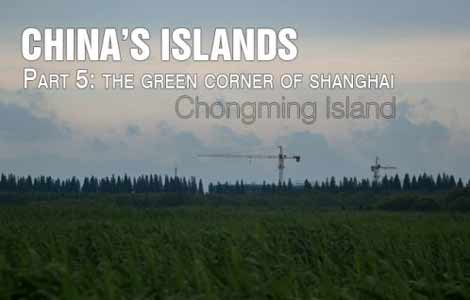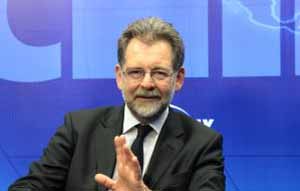Investing a nation's wealth wisely
Updated: 2013-09-30 01:21
By Chen Jia (China Daily)
|
||||||||
New frontiers
Since its inception in 2007, CIC has strived to generate higher returns on China's huge foreign exchange reserves. Most of its investments have been spread across a range of countries such as Australia, Brazil, France, Russia and the United Kingdom.
Last year, nearly 27.8 percent of the equity investments CIC made overseas were in advanced economies other than the US, with Europe being the mainstay. The corresponding figure for such investment in 2011 was 20.6 percent.
A look at the direct investment projects of CIC last year shows that five out of the six projects were in Europe, including France, Russia and the UK. In 2012, 23 percent of CIC's equity purchases came from emerging markets, especially in the Asia-Pacific region. The proportion was 29.6 percent in 2011. But that seems to be changing, as Africa and Europe slowly become new destinations for the fund.
In November last year, CIC invested 450 million pounds ($720 million) for a 10 percent stake in Heathrow Airport Holdings Ltd, a prominent airport operator in the UK and one of the busiest international air hubs in Europe.
It also invested 276 million pounds in January last year for an 8.68 percent stake in Thames Water Utilities Ltd, a London-based private utility company responsible for public water supply and waste water treatment.
"CIC perceives the UK as a destination of choice for long-term investment because of its business-friendly environment and sound legal framework," the company's annual report said.
Russia is another region in Europe where the fund has invested in several resource projects. Last year, the CIC signed a Memorandum of Understanding with Vnesheconombank in Moscow for investment cooperation in infrastructure construction and development programs in the Russian Far East. The fund also injected $425 million into Polyus Gold International Ltd, the largest gold producer in Russia.
EGGS: Never put them all in the same basket
The CIC is also planning to expand its investments into West and East Africa.
"The fund is in talks with government officials from countries in these areas for railway, port and highway investment projects, especially for the cross-border highways," Gao Xiqing, CIC's vice-chairman and general manager, said in March.
Analysts feel the signals exhibited by the sovereign wealth fund in recent years shows it is keener on energy resources and fixed-asset investment projects overseas, besides buying financial products, such as treasury bonds and shares. On the other hand, it has also spurred criticism that Chinese investment could be a potential threat to local development.
However, CIC officials dismiss such charges. "The CIC has always identified itself as a ‘pure' financial investor," the unnamed fund official says. "Although it is the biggest manager of the country's foreign exchange reserves, it is more of a strategic investor."
Wu Weihai, a researcher at the research institute under the Ministry of Industry and Information Technology, says wealth funds usually base their global investments on two factors. While the first approach focuses on buying equity in companies and industries to gain dividend and stock premium, the other is concentrated on rights purchases in selected companies to gain management control. "It is obvious that the CIC investment strategy falls into the first category," Wu says.
The next step for the CIC should be to invest in overseas industries that have advanced technologies or management capabilities, because it would help accelerate domestic industrial upgrading and facilitate economic rebalancing, Wu says.
"The company's goal is pursuing long-term returns by customizing investment strategies based on different projects in different countries," CIC vice-chairman Gao says. "The investment theme is not for mergers and acquisitions, or to control any overseas company. We don't want to be seen as a destroyer by any country."
According to the company's 2012 annual report, by the end of last year, the company's total assets stood at $575 billion, compared with $482 billion a year earlier. About 32 percent of its overseas investment were in public equities, 32.4 percent in long-term investments and 19.l percent in fixed-income securities.
"We have increased purchases of public equities and steadily boosted long-term investment in infrastructure construction, energy and mineral resources, and real estate," the unnamed official says.
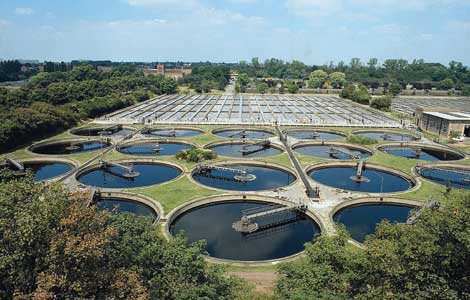
 Visible face of CIC investment
Visible face of CIC investment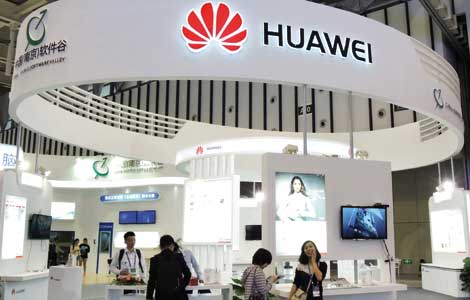
 Up, up, Huawei finds new friends in Europe nations
Up, up, Huawei finds new friends in Europe nations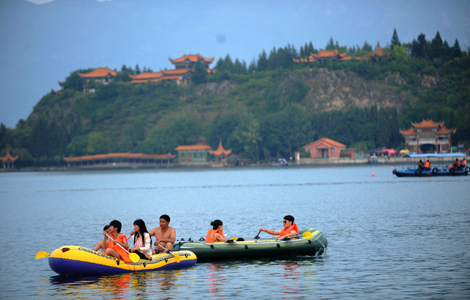
 Yuxi to shield Fuxian Lake by creating wetland area
Yuxi to shield Fuxian Lake by creating wetland area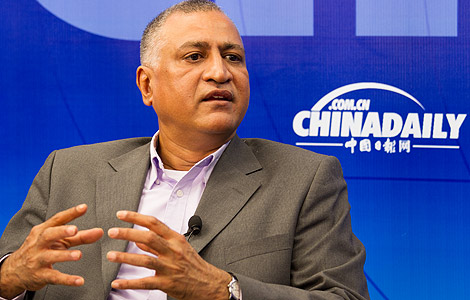
 A man with passion for China
A man with passion for China
 American batman soars through Chinese mountain
American batman soars through Chinese mountain
 Kenya mourns victims of Westgate mall attack
Kenya mourns victims of Westgate mall attack
 Home schooling popular with Chinese parents
Home schooling popular with Chinese parents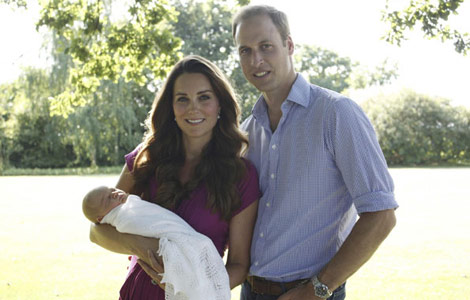
 Royal Mint coins to mark Prince George christening
Royal Mint coins to mark Prince George christening
Most Viewed
Editor's Picks

|

|

|

|

|

|
Today's Top News
50 foreign experts honored with Friendship Awards
'Reflects active opening-up strategy'
Visible face of CIC investment
Academic warns Obama on Pacific policy
NSA mapping networks of citizens
Investing a nation's wealth wisely
Little-known now, but a big future
Shanghai opens free trade zone
US Weekly

|

|
